The UK is one of the most appealing locations to buy a property, whether as an investment or a permanent residence. The busy and safe property market is supported by strong property rights and stable local government. The UK boasts some of the world’s great cities, including the reborn Belfast, Cardiff, Manchester and Liverpool. If you haven’t visited these cities for a while you’ll be impressed; they have recovered from their post-industrial past with billion-pound investments in commercial centres, infrastructure and housing. London, boosted by the success of the 2012 Olympics, lays claim to have overtaken New York as the pre-eminent global city, a beacon of design, enterprise and efficiency. That’s why we’re launching our six-part serialisation of Buying in the UK. This week, in Part One, we’re looking at reasons for buying property in the UK and what your main choices are.
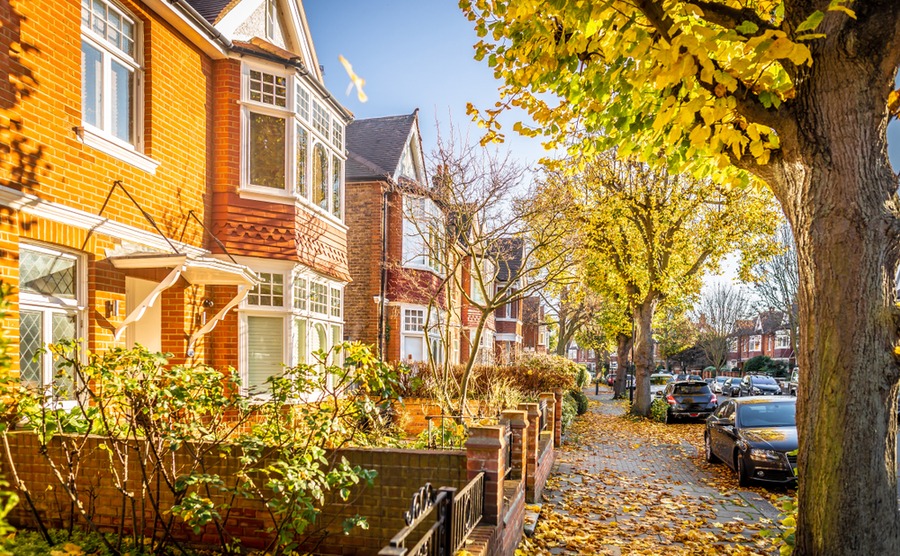
The UK has one of Europe’s most exciting property markets.
1. A safe haven
Heaven, so the saying goes, is where the chefs are French, the mechanics are German and the police are British. Foreigners are allowed to buy property in the UK with minimal or no restrictions, protected by strictly enforced property rights. Your property purchase in the UK is likely to be problem-free. If anything does go wrong, the British legal system offers cheaper and faster redress than in most countries, and all in the English language. There is little corruption, with the UK being placed high up the table and regularly in the Top 10 for being one of the least corrupt countries by Transparency International. Some investments are regulated by the Financial Conduct Authority (FCA). For all these reasons, global investors view buying property in the UK as a safe and secure investment.
Your property purchase in the UK is likely to be problem-free. If anything does go wrong, the British legal system offers cheaper and faster redress than in most countries, and all in the English language.
2. Demand vs supply
Britain, and England in particular, is among the most densely populated countries in Europe, with one of the highest rates of immigration. It also has a powerful conservation lobby and strict planning controls. That has all added up to a housing shortage and prices shooting up as the supply of new homes has failed to keep up with demand.
3. A foot in the UK market
The average price of a British home rose 2.7% between 2017 and 2018 to reach £231,095. This is far ahead of both most other property markets and average salaries. Expatriates moving abroad have found that if you step out of the UK property market for a long period of time, you struggle to get back in. Many British people moving abroad therefore keep a place in the UK so that if/when they return they will be able to own a property here again.
4. Low transaction costs
The costs of buying and selling property in the UK are one of the lowest in the world and are mainly paid by the seller. At around 5%, they are the fourth lowest among the 37 countries in Europe, as well as other popular investment destinations such as the USA and Australia.
5. A range of investments
Buying property in the UK for investment is popular, and a range of investment vehicles and strategies exist for even small budgets. You can invest in everything from car parking spaces to retirement rooms to multimillion pound London homes.
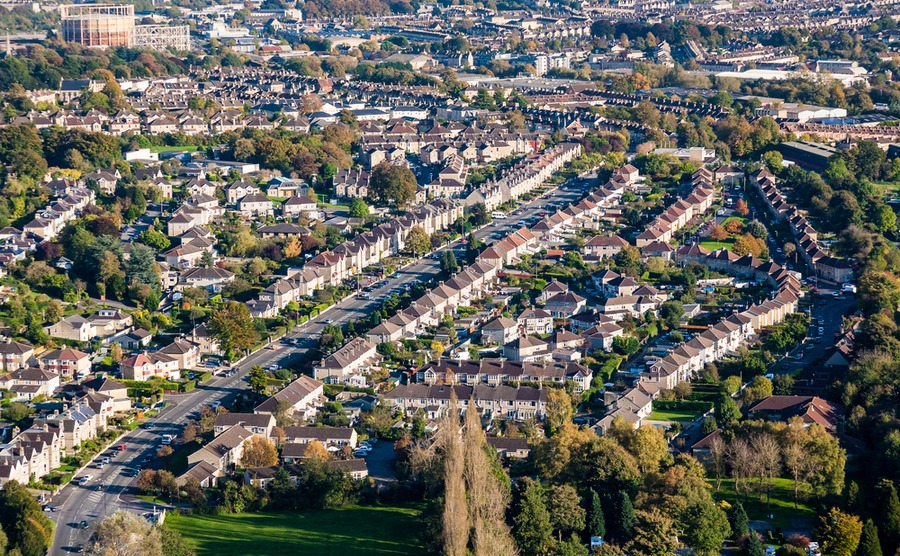
Many people buying property in the UK do so for investment reasons.
Planning your purchase
A major project such as a property purchase works best if you work from a plan, with defined goals and milestones. Your first task is to answer some basic questions:
- What will be the purpose of the property? To live there? As an investment? If so, what type of investment? Or is it a holiday home?
- Why the UK?
- What do you want and expect to get out of the experience?
Then, to start your property search, you need to define what you’re looking for. If buying a property to live in:
- Where in the UK?
- In the centre of town or on the outskirts?
- How much do you want to spend?
- How many bedrooms and bathrooms do you need?
- What type of property do you want?
These are the basic questions for an online search. Next you can narrow your search:
- Do you want a garden?
- Do you need off-road parking? (Car insurance costs are higher for parking on the road.)
- Do you want to be close to the airport?
- How long a commute to work could you cope with? And how far taking children to school?
- Is it important to you to be close to local amenities, such as shops and nightlife?
Buying-to-let:
- What rental yield do you need to achieve?
- What kind of tenants do you wish to attract?
- Which areas are the most in demand with renters?
- Will this area and property appeal to that market?
What local amenities are vital to your tenants? Schools, public transport, city centre, medical facilities?What will be less vital, but attractive to renters? For example, parks, good quality local restaurants, foreign language schools?
Buying for capital growth:
- Which regions or counties offer the best investment opportunities?
- Which areas are going to be made more desirable by future infrastructure changes?
- What return on investment is likely?
Make sure that you get the best price for your money with the insider tips and tricks in our free guide, How to Negotiate Abroad.
Gathering information
There is no shortage of information on the UK housing market. Rightmove provides a huge range of detailed market data, including local property market trends and its own House Price Index. Take a good look round our news sections: this should be a fascinating part of the property buying process, and a little research can go a long way when looking for investment opportunities.
Many newspapers have a special weekly supplement too and there are countless property investment books, magazines, blogs and podcasts. Immerse yourself in the UK property market and pull together as much information as you can – both positive and negative. Look online at property buying groups and forums, particularly for issues or complaints that stand out or reoccur. Keep notes on what you find: property styles you like, costs, locations that catch your eye and which resources are the most helpful.
British property styles
British property essentially divides into houses of various types, and flats, in the following proportions:
- Detached houses: 23%
- Semi-detached houses: 33%
- Terraced houses: 26%
- Purpose-built flats: 12%
- Converted flats: 5%
- Other: 1%
Houses
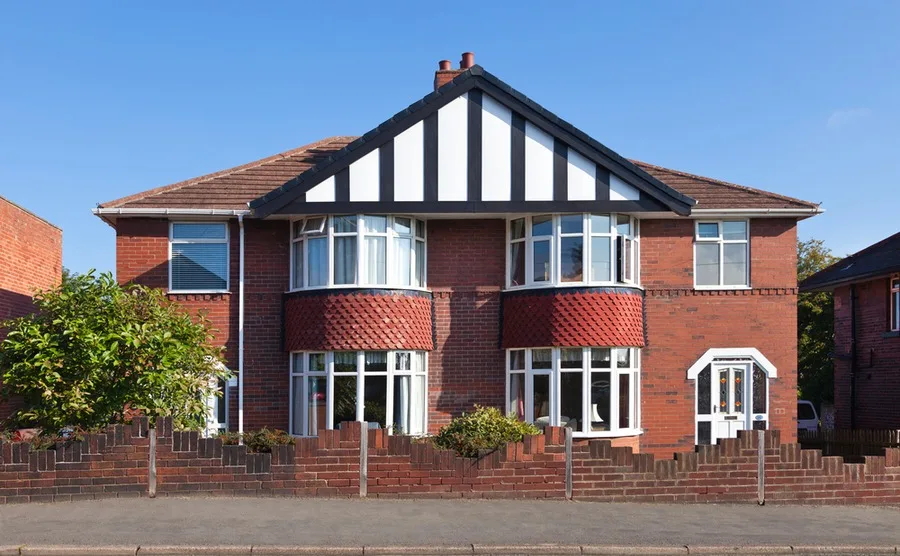
Many British suburban homes are semi-detached.
A house is taken to mean a self-contained home with a front door and bedrooms. It can be completely separate from other buildings and standing in its own grounds (detached) or joined to another property on one side (semi-detached), or in a row (terraced). Detached properties, with their extra privacy and quiet, tend to be more expensive.
Bungalows can sometimes command a premium for their usefulness to the elderly or disabled, and for their potential for extension into an extra storey.
A bungalow is a house all on ground level. Although cheaper to produce than houses, bungalows can sometimes command a premium for their usefulness to the elderly or disabled, and for their potential for extension into an extra storey.
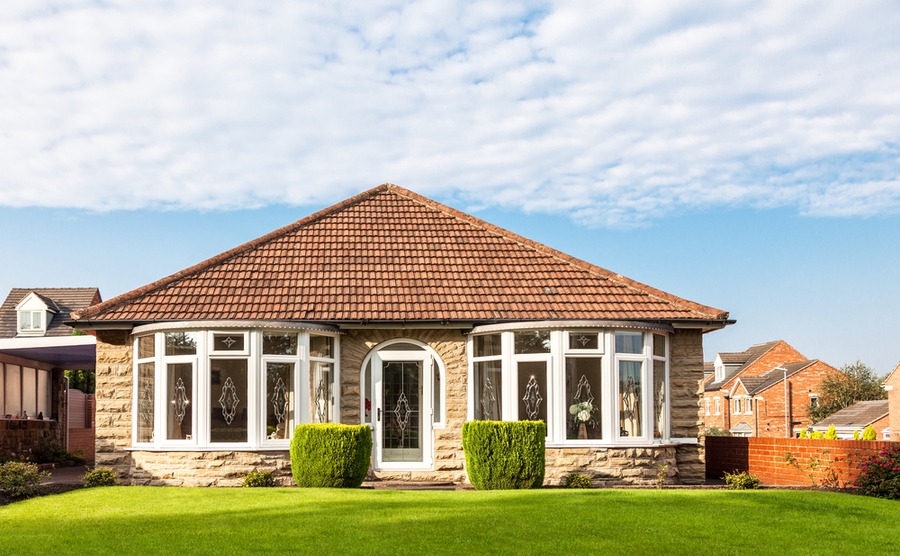
A UK bungalow is a single-storey home.
A cottage is a small detached house in a more rural setting. The archetypical British cottage has a thatched roof, but this is only a very small percentage of homes. You can easily pay more for a beautiful older (‘period’) property. While they tend to hold their value they will often cost more for upkeep and have planning controls that limit what you can do with them. If you are buying a ‘listed’ property there will be strict controls on building and how the property is decorated. A detached or semi-detached house will normally come with a garden and often a garage, or at least off-road car parking.
Much British housing is in a row, or terrace, especially in towns and cities. Terraced houses are higher density, although they often have small gardens or yards, but you are sharing a wall with at least one neighbour. End of terrace houses are often a little more expensive.
Houses are normally sold freehold.
Flats
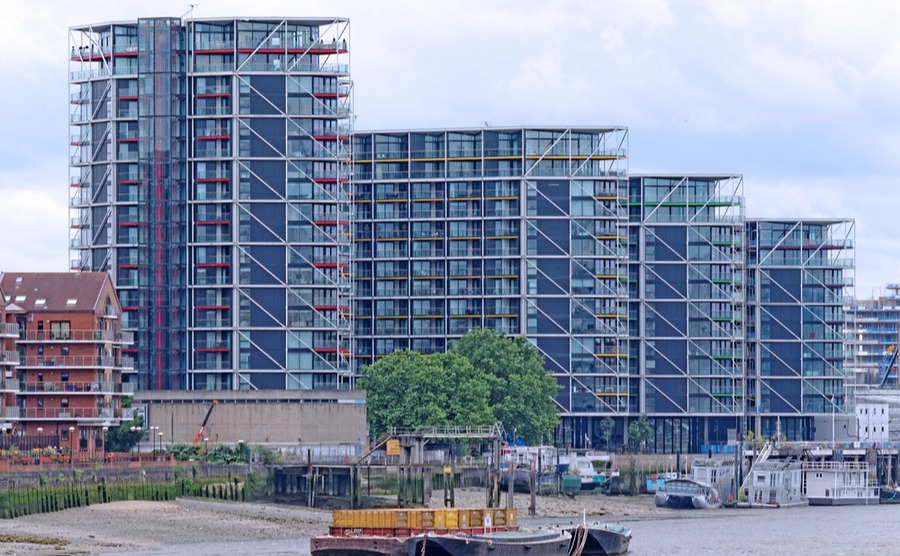
You’ve a wide choice of property types if you’re thinking of buying property in the UK. Pres Panayotov / Shutterstock.com
Although often referred to these days as apartments, flats are properties within shared blocks and developments. Their technical definition is that they are single storey properties in a building of more than one storey. Although self-contained, they will often share an entranceway with other properties. Flats usually do not have private gardens – if they do, they are referred to as ‘garden flats’ – although they will often be surrounded by communal gardens or landscaping.
Flats may be purpose-built, such as residential tower blocks, or they may be larger houses that have been divided – usually known as a flat conversion. A maisonette is a version of a flat that is set over two floors, usually with a separate entrance.
Flats may either be owned freehold or leasehold.
Buying property in the UK
If you’re considering buying property in the UK, then do make sure you keep up with our serialisation over the coming weeks, to help you buy in 2019. Or, if you want all the information at your fingertips already, download the free guide below.









